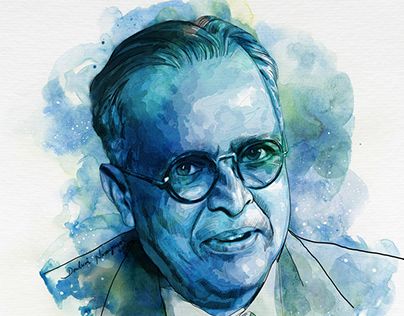K. R. Narayanan: The Inspirational Journey of India’s First Dalit President
K. R. Narayanan, born on October 27, 1920, in Uzhavoor, Kerala, holds the distinction of being India’s first Dalit President. As the 10th President of India (1997–2002), he symbolized social empowerment and progress in a country striving to overcome centuries of caste-based discrimination. A statesman, diplomat, and academician, Narayanan’s life story is one of resilience, determination, and service to the nation.
Who Was K. R. Narayanan?
Kocheril Raman Narayanan, often referred to as “the philosopher-president,” was a leader who broke barriers and inspired millions with his intellect and dedication. He played a vital role in upholding the values of democracy and inclusivity in India.
Early Life and Education
- Humble Beginnings: Born into a poor Dalit family, Narayanan faced significant hardships, including caste discrimination. His father was a traditional healer, and the family often struggled to make ends meet.
- Education: Despite these challenges, Narayanan excelled academically. He completed his Bachelor’s and Master’s degrees in English literature from the University of Travancore. He later earned a scholarship to the London School of Economics, where he studied under Harold Laski, a renowned political thinker.
Daily Life and Values
K. R. Narayanan’s disciplined lifestyle and values were deeply rooted in his experiences.
- Routine: A man of simplicity, Narayanan began his day with reading and reflection. He maintained a meticulous schedule and valued time management.
- Compassion: His life experiences made him empathetic toward marginalized communities. He actively worked to uplift the downtrodden through his policies and actions.
- Intellectual Pursuits: Narayanan was an avid reader, often diving into books on philosophy, economics, and political science.
Career Highlights and Achievements
1. Diplomatic Career
- Narayanan joined the Indian Foreign Service in 1949, marking the beginning of an illustrious career.
- He served in several key positions, including as India’s ambassador to Thailand, Turkey, China, and the United States. His tenure was characterized by his ability to foster strong international relations.
2. Political Career
- After retiring from the IFS, Narayanan entered politics at the behest of Prime Minister Indira Gandhi.
- He was elected to the Lok Sabha and held various ministerial portfolios, including Planning, Science and Technology, and External Affairs.
- As Vice President of India (1992–1997), he displayed impartiality and upheld democratic values.
3. President of India (1997–2002)
- K. R. Narayanan was elected as the 10th President of India, becoming the first Dalit to hold the nation’s highest office.
- His presidency was marked by his emphasis on accountability, transparency, and inclusivity.
- He was unafraid to exercise his constitutional authority, often seeking clarifications from the government on controversial decisions.
Interesting Facts About K. R. Narayanan
- He was the first President to vote in a general election, setting an example for active citizen participation.
- Narayanan was a gold medalist in English literature during his university years.
- He married Ma Tint Tint, a Burmese woman, making him the first Indian President with a foreign spouse.
- Known for his humility, he often interacted directly with citizens and encouraged inclusivity.
- He delivered some of the most impactful presidential speeches, emphasizing social justice and equality.
Significance and Legacy
K. R. Narayanan’s life and career have left an indelible mark on Indian society.
- Breaking Barriers: As the first Dalit President, he represented hope for marginalized communities and became a symbol of social justice.
- Democratic Integrity: Narayanan upheld the Constitution with unwavering dedication, often emphasizing the importance of inclusivity and secularism.
- Inspiration for Youth: His journey from a small village to Rashtrapati Bhavan inspired countless individuals to pursue their dreams despite adversity.
- Global Relations: His diplomatic career strengthened India’s ties with other nations, contributing to its international stature.
FAQs About K. R. Narayanan
Q1. Why is K. R. Narayanan’s presidency significant?
His presidency is significant for breaking caste barriers and promoting accountability in governance.
Q2. What were his contributions to diplomacy?
As a diplomat, Narayanan fostered strong international relations, representing India with dignity and wisdom.
Q3. How did Narayanan promote social justice?
Through his speeches and actions, he consistently advocated for the rights of marginalized communities and emphasized the need for equality.
Observance and Relevance Today
Though there isn’t a specific day dedicated to K. R. Narayanan, his contributions are celebrated in educational and social forums. His legacy continues to inspire efforts toward social equality and justice in India.
K. R. Narayanan’s story is a powerful reminder of the transformative potential of education, resilience, and service. His life continues to serve as an example of how perseverance can overcome even the most significant challenges, inspiring future generations to strive for equality and excellence.










